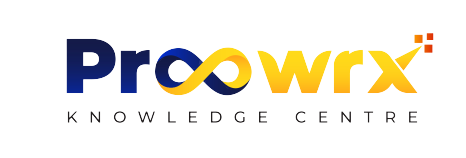In the dynamic world of mortgage brokering, it’s crucial to be well-versed in the intricate language that surrounds the industry. As mortgage brokers operating in Australia, you are the intermediaries between lenders and homebuyers, responsible for navigating the complexities of mortgages. To better serve your clients and stay ahead in the industry, it’s essential to have a comprehensive understanding of mortgage jargon. In this blog, we will break down the complex mortgage terminology to empower you with the knowledge needed to excel in your profession.
1. Cross-Collateralization
Cross-collateralization involves using multiple properties as collateral for a single loan. This strategy can be complex because it links the fate of multiple properties together, making it crucial for brokers to understand the implications for their clients’ risk and leverage.
2. Redraw Facility
A redraw facility is a feature that enables borrowers to access any additional repayments they’ve made on their loan. Mortgage brokers must explain how this feature works, as it can be a useful way for clients to tap into their equity or manage their finances.
3. Offset Sub-Account
An offset sub-account is a sub-account linked to the main mortgage account, offering offset benefits. Brokers should comprehend how offset sub-accounts interact with the primary loan to help clients reduce their interest costs.
4. Split Loan
A split loan is a mortgage divided into two or more portions with different interest rate types or terms. This strategy can be complex to explain, but it provides clients with flexibility in managing their loans, especially if they have different financial goals for various portions of their mortgage.
5. Mortgage Offset Ratio
The mortgage offset ratio calculates the percentage of savings held in an offset account against the loan balance. Mortgage brokers should understand this ratio as it can help clients see the impact of offset savings on their interest payments.
6. Clawback Provisions
Clawback provisions are stipulations in loan agreements that allow lenders to reclaim commissions or fees from brokers under specific conditions. It’s essential for brokers to understand the terms and potential financial impacts, ensuring transparency with their clients.
7. Mortgage Discharge
Mortgage discharge is the process of fully paying off and releasing a mortgage. Brokers should guide clients through this process, ensuring that all necessary steps are completed to remove the mortgage lien and transfer property ownership.
8. Genuine Savings
Genuine savings refers to funds that a borrower has saved over time, typically over three to six months. It’s not gifted or borrowed money. Brokers should clarify the importance of genuine savings when applying for a loan, as it can affect a borrower’s eligibility and interest rates.
9. High-Density Zoning
High-density zoning is a complex zoning classification that affects property development. Mortgage brokers should understand how zoning regulations can impact property values and the financing options available for a specific property.
10. Debt-to-Income Ratio (DTI)
The debt-to-income ratio (DTI) measures a borrower’s ability to manage additional debt in relation to their income. Brokers should help clients understand how their DTI influences loan approvals and how it affects their financial stability.
11. Non-Conforming Loan
Non-conforming loans are designed for borrowers who don’t meet standard lending criteria. These loans cater to specific client needs but can be complex due to their unique requirements and the lenders who offer them. Mortgage brokers should be well-versed in non-conforming loan options.
12. Mortgage Cliff
The Mortgage Cliff is a term that describes a crucial point in the life of a mortgage. It’s the moment when a borrower’s fixed-rate term or introductory rate expires, and they transition into the standard variable rate. This transition can lead to significant changes in monthly mortgage payments, which may catch borrowers off guard if they are not prepared for the increase. Mortgage brokers need to help clients understand when their Mortgage Cliff is approaching, how it impacts their financial obligations, and explore refinancing options if necessary to ensure a smooth transition without financial shocks.
By understanding these complex mortgage jargons, mortgage brokers can provide more comprehensive and informed assistance to their clients, ultimately enhancing their professional expertise and helping borrowers navigate the intricacies of the Australian mortgage market.
At Proowrx, we understand the importance of your role as a mortgage broker. We offer customizable outsourcing services that can help you streamline your operations, enhance your client relationships, and grow your business. By partnering with Proowrx, you can access the back-office support you need to excel in the competitive Australian mortgage market while providing exceptional service to your clients.

